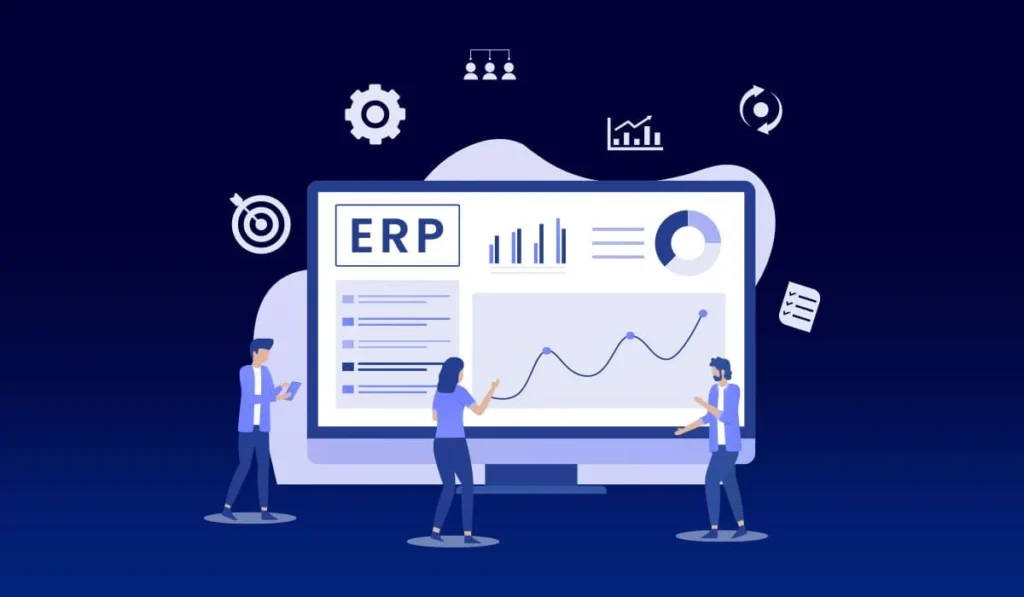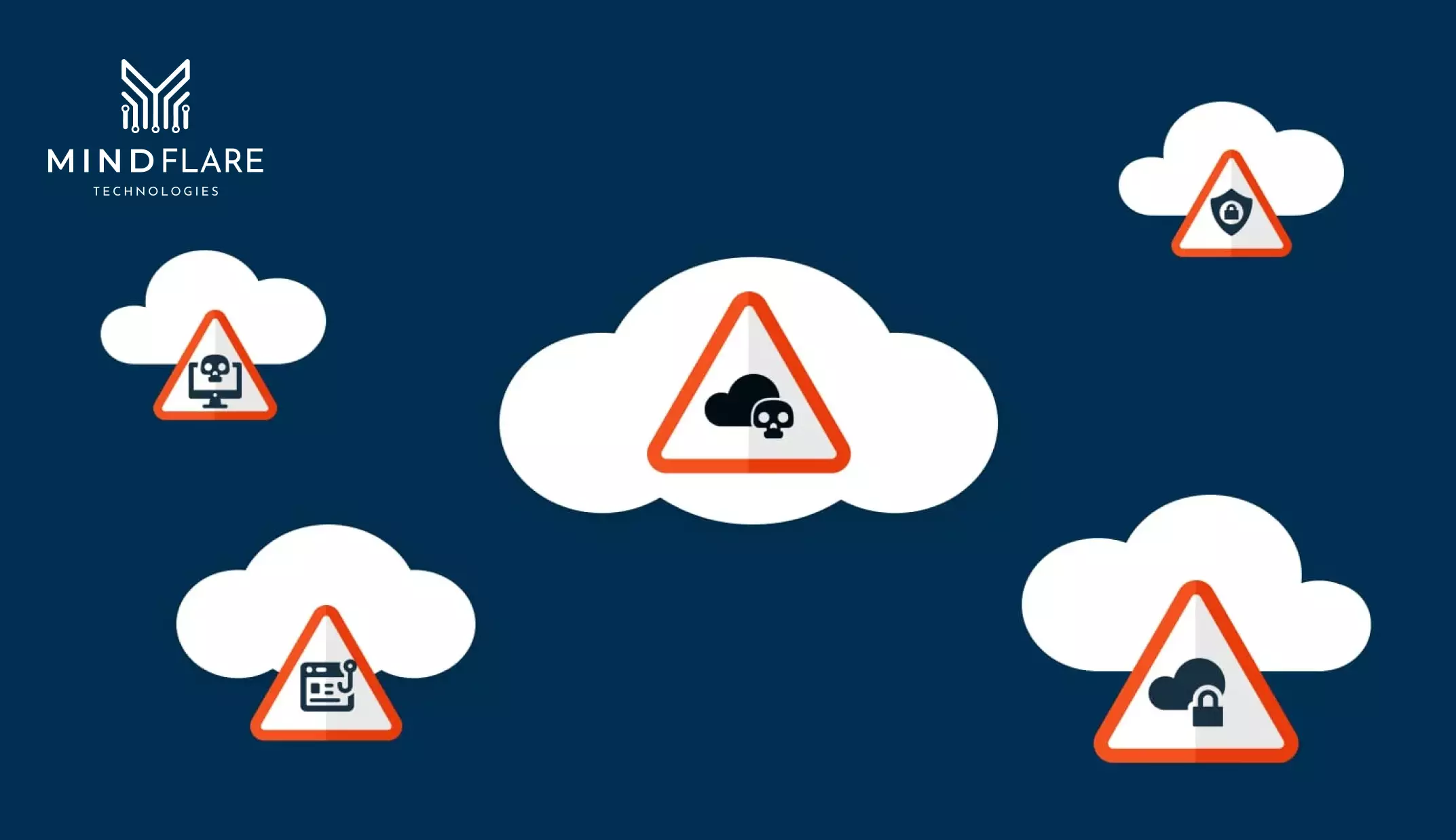5 Common Myths About Cloud Computing
While cloud computing is a necessity for contemporary businesses, myths concerning security, cost, and control often lead to misunderstandings. The cloud computing is more than we think, contrary to what most people think, is more secure, cheaper and easier to access to all businesses, regardless of size.
Introduction
With the evolution of technology, cloud computing today plays a significant role in how organizations manage, store, and process their data. But, like so many other things out there, the more common it gets, the more cloud computing myths popped up. Those three myths — security, cost, and control — may convince businesses to stay away from cloud altogether, missing out on the benefits of it. In this article, we will try to dismantle five cloud computing myths that need some clarity. Wondering if cloud computing only caters to big names in tech and is never secure? We will leverage each myth that hinders businesses from understanding the idea of cloud computing and the benefits that cloud holds for every business and moreover, we will get to know the truth behind each myth whether a myth is fact or one cannot deny the myths when it comes to cloud computing.
Myth 1: Cloud Computing is Not Secure

The cloud is insecure — This is a common myth. Some people think keeping data physically remote will put it more at risk for a breach. Despite this, there are solid cloud providers that are employing every security precaution they can, from encryption to firewalls to multi-factor authentication. In fact, these safeguards frequently exceed what many organisations can manage on their own property are an extremely secure solution for companies.
Insights on Cloud Security Controls
By far, one of the biggest myths of cloud computing is that it is insecure. Many think that cloud storage subject data to more breaches or cyberattacks since its off-site. But the best cloud services allocate large amounts of money towards security, which is often more than a business could ever hope to deploy on its own.
Encryption and Data Protection
Cloud providers typically employ strong encryption practices to secure data in both rest and transit. That is, even if the data were translated, nobody would be able to read it without the appropriate decoding vital. In addition, providers are typically bound by strict compliance standards such as GDPR, HIPAA and ISO, which means that data protection is guaranteed to be compliant with international law.
Authentication and Firewalls
The use of other security features such as MFA and firewalls add additional layers of defense. Multi Factor Authentication (MFA) uses several steps to confirm the identity of a user, whereas a firewall helps to the unauthorized personnel access it. They have automatic security updates and continuous security monitoring which allows for a strong line of defense among threat actors, making it one of the most secure options for businesses.
Conclusion for Myth 1
In fact, cloud computing can be equally if not more secure than traditional on-premise solutions, due to the mature security controls adopted by cloud providers.
MYTH 2: The Cloud Computing is Too Costly

Cloud Computing is cost-effective
One other widespread belief is that cloud computing is overly exalted in terms of price, especially among small and medium-sized enterprises (SMEs). The usage of cloud services is not free, but there is a flexible pricing model for the customer on the basis of pay-as-you-go, allows a business to have control on the expenses with only paying for what it uses.
Lowering Infrastructure and Maintenance Costs
Typically a business would need to invest in hardware, IT infrastructure and regular maintenance which is expensive and a long-term commitment. Organizations remove these capex costs by moving to the cloud. Cloud providers handle the physical infrastructure, so it drives down costs associated with hardware and IT staff as well.
Scalability to Control Cost
Scalability — Scalability is one of the major benefits of cloud computing. When a business grows, or experiences peaks of business seasonally, in the cloud they can easily increase their resources without buying new hardware. The flexibility to scale with demand also means that companies only have to pay for what they use, preventing miscellaneous spending on services that are not used, hence managing the cost management aspect.
Conclusion for Myth 2
In fact, dispelling the myth, cloud computing is a logical solution for many businesses that wish to minimize operating costs and tailor their spending to usage.
Myth 3: Cloud Computing is Only Another Data Storage

Not Only for Data Storage: How Cloud Computing Can Be Used
This definition does not encompass the entire reality of cloud computing, which has evolved to provide diverse services, although many people relate it mainly with the storage of information. Cloud platforms offer a variety of capabilities such as computing power, analytical capabilities, development tools, and many more for modern businesses.
The Power Of Computing And Scalability
Using the cloud, companies will be able to execute complex applications, simulations, and analysis of data for a fraction of the costs associated with these activities on a physical server. All of this helps companies that have a need for high processing power on an irregular basis because they can expand resources as necessary.
Conclusion for Myth 3
Cloud is much more than just online data storage. A centralized platform that enables businesses to create, assess, and run effortlessly.
Myth 4: Cloud Computing: Losing Control Over Data
You are not going to take everything offline, but as a business, you want to maintain data control in the cloud as quickly as possible, and H2 is just one way of doing it.

Maintaining Data Control in the Cloud
And above all many businesses fear that putting their data into the cloud means handing it over to someone else and losing control over it. This myth is based on the perception that cloud providers will have free reign to access business data. Actually, cloud computing services allows with a lot of flexibility and control to keep the data close and secure.
Role-Based Access Control
With role-based access control (RBAC), cloud providers let businesses set their own permissions and restrictions. RBAC: With RBAC, companies can determine how to define user roles and clarify who has access to which data and not overexposing sensitive data.
Conclusion for Myth 4
Cloud computing does not result in loss of data ownership by businesses. Instead, they get tools that allow them to improve the security and management of data, but they still have complete control over access and permissions.
Myth 5: Cloud Computing Is Only for Big Enterprises

Making It Accessible for All Size Businesses
One such enduring myth around cloud computing is that it is a gateway solely for those larger businesses with more significant IT requirements. This myth fails to recognize the availability and accessibility of cloud services that provide solutions for businesses of any size.
Small Enterprises and New Businesses
Cloud computing is particularly advantageous for small businesses and startups. SMEs have the ability to access advanced computing power, storage, and applications without a lot of heavy investment, while benefiting from the same high-quality infrastructure that big businesses have access to, with little upfront costs. Cloud computing is an equalizer that puts powerful tools into the hands of smaller organizations that were previously only available to enterprises.
Plans Suited to Your Unique Requirements
With different pricing tiers and service offerings, cloud providers cater to different needs for businesses with varying requirements, offering solutions that align with particular needs and affordability. Cloud computing solutions ranges from single applications to full platforms covering all possible needs of a business.
Conclusion for Myth 5
Not Exclusive to Big Businesses Cloud computing is still not exclusive to big businesses. In truth its market and economy are simply perfect fit for all kinds of business or enterprise.
Conclusion
Cloud computing is an admirable technology—just not for everyone–but misperceptions around some tenets (e.g. security, cost, control) remain pervasive. Cloud solutions are actually very secure, affordable, scalable to all companies big or small, and provide many services and flexible capabilities, far beyond just storage. Removing these myths can give businesses a better insight into the real worth of cloud computing and help them use that to scale gear and innovation. These truths, once understood, can give organizations the confidence to opt for the cloud, backed by efficient and secure technology.